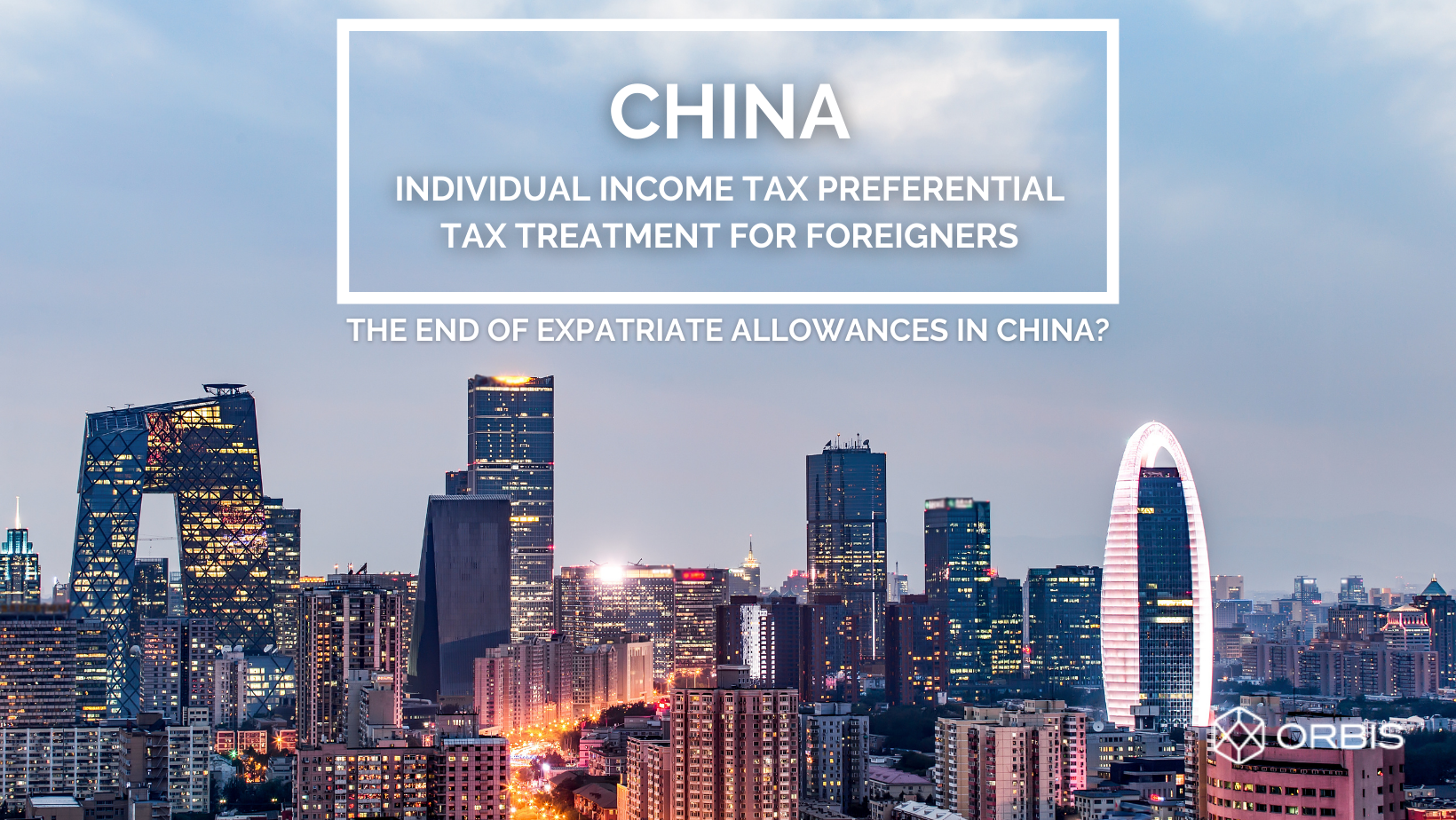In an effort to attract foreign talents, the Chinese authorities currently allow expatriates to claim part of their salary in tax-exempt allowances. The Individual Income Tax (IIT) chapter in the Chinese tax law specifically lists the preferential individual income tax policies enjoyed by foreign individuals (housing subsidies, food allowances, relocation fees, laundry fees, travel subsidies, family visit fees, language training fees, children’s education fees, etc.) in the form of non-cash or reimbursement, and exempted from individual income tax if they provide valid proofs.
Starting from January 1st, 2022, foreign taxpayers will enjoy the same “special deductions” that apply to all residents, thus losing some of their current tax-free allowances. The new IIT law outlines six deductions that apply to all tax residents: children’s education, continued education, major illness, rent, home loan interest, and elderly care. This is the principle of ‘equal treatment’, meaning that regardless of whether it is a foreign or a non-foreign individual, there is a single classification standard, and there will be only “tax-resident individuals” or “non- tax-resident individuals” under this new IIT system.
There are two criteria in order to distinguish tax-resident individuals and non-tax-resident individuals: domicile and residence time.
- A tax-resident individual is an individual domiciled in China or not domiciled in China but has stayed in China for 183 days or more cumulatively within a tax year;
- A non-tax resident individual is an individual who has no domicile or residence in China, or who has no domicile but has resided in China for less than 183 days in a tax year.
Until December 31st, 2021, foreign taxpayers can choose between the old allowances system and the newly-introduced “special deductions”, bearing in mind that they cannot change their choice within a given tax year.
By January 1, 2022, the transition period will be over, and all preferential policies for foreign individuals will be cancelled. The foreigners’ tax-free allowances, which are based on a proportion of their salary (generally around 30 percent) remain more beneficial for employees with a higher income. Meanwhile, the new special additional deductions are more helpful for lower-income employees as they are based on a standard deduction amount. Since this limit of special deduction is low, it might be advisable for foreigners to choose the original policy during the transition period.
If you have any questions about IIT in China or the forecasted policy changes to the preferential tax treatment of expatriate allowances, please do not hesitate to contact us at contact@orbis-alliance.com.

 Français
Français
 English
English  Español
Español 